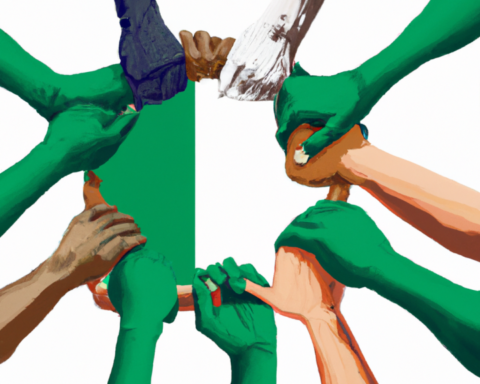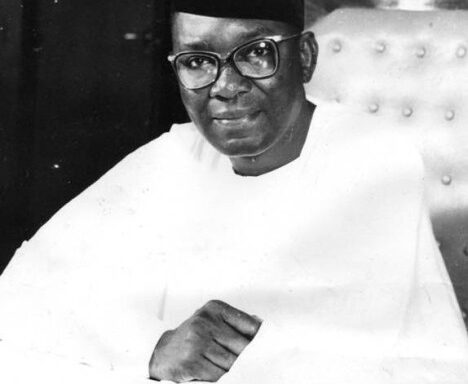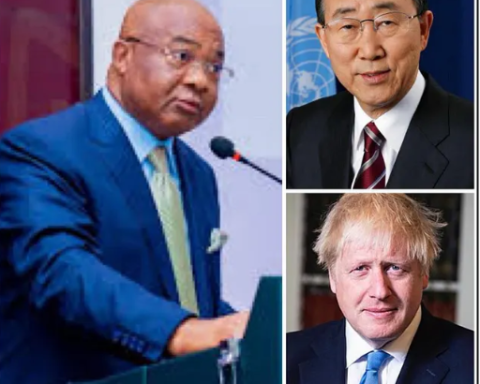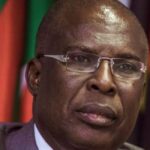By George O. Sylvester
When Bola Ahmed Tinubu thundered “Emilokan”; Yoruba for “It’s my turn”, during his now-infamous declaration of presidential ambition, it resonated not as a call to serve, but as a personal entitlement. The former Lagos governor, long regarded as a political tactician lurking in the shadows of power since the early 1990s, assumed the presidency in 2023 with the self-proclaimed aura of inevitability. But barely a year into his tenure, it has become glaringly evident: Bola Ahmed Tinubu was profoundly unprepared for the very office he schemed, plotted, and politicked for over three decades to attain.
This is no longer just political opinion, it is the lived reality of over 200 million Nigerians now burdened by escalating poverty, insecurity, and economic hopelessness. The man who once strutted the corridors of Bourdillon like a kingmaker has proven to be a disaster in office, leading with a detachment so severe it borders on abdication.
A President Abroad: Governance by Absence
Since assuming office, President Tinubu has spent an estimated 70% of his leadership days in Europe or elsewhere outside Nigeria. From medical trips cloaked as “private visits” to diplomatic shuttles that yield no visible results, his preference for foreign soil has turned Nigeria’s highest office into a revolving door of absenteeism.
Economic analyst Dr. Ayo Teriba did not mince words when he recently remarked, “We are in a leadership vacuum. The ship is rudderless while the captain watches from a distant shore.”
This chronic absence undermines not only the operational machinery of governance but the symbolism of leadership. In a nation grappling with multidimensional poverty, a spiraling exchange rate, and unprecedented inflation, the least citizens deserve is a president who is physically and mentally present.
*Policy Catastrophe: A Clueless Economic Agenda*
Tinubu’s first act as president was the abrupt removal of fuel subsidy, an economically necessary but grossly mishandled decision. Implemented without a cushion or plan, it triggered a tsunami of inflation that devastated the already impoverished populace. Transportation costs doubled overnight. Food prices soared. Businesses collapsed under the weight of erratic fuel supply and unaffordable diesel.
Renowned economist and former CBN Deputy Governor Kingsley Moghalu summed it up sharply:
“Sound economic reform is not about bravado. It’s about sequencing, communication, and empathy. None of these were present in the Tinubu administration’s fuel subsidy removal.”
The naira, which was ₦460 to $1 in May 2023, has plummeted to over ₦1,400 within months, despite empty promises of “market reforms.” The CBN remains directionless, mired in confusion and panic-driven policies. Inflation now stands at over 33%, with food inflation nearing 40%, according to the National Bureau of Statistics (NBS).
*Tinubuomics: Tax the Poor, Enrich the Powerful*
Under Tinubu, fiscal policy has turned predatory. New taxes and levies are imposed almost monthly, squeezing an already overburdened informal sector. Yet the same administration refuses to cut government waste, reduce the bloated cost of governance, or hold political elites accountable.
“Tinubu’s economic strategy is a tale of punishing the poor while protecting the powerful,” said Professor Pat Utomi. “The government has become a collection agency for the elite.”
Instead of addressing structural issues, the administration obsesses over optics, renaming airports, appointing redundant aides, and holding international meetings that produce no real investment or outcomes.
*Security in Shambles: A Nation Under Siege*
The security situation remains dire. Boko Haram, bandits, unknown gunmen, and kidnappers continue to run riot. In Plateau, Zamfara, Kaduna, and even the FCT, citizens live in fear. There is no sense of urgency or coherent national security policy from the presidency.
Just weeks ago, over 300 schoolchildren were kidnapped in Kaduna in one swoop, yet Tinubu issued no national address. Former National Security Adviser Col. Abubakar Dangiwa (rtd) lamented, “There is no soul in this leadership. They do not feel the pain of the people.”
*The Tinubu Myth: A Manufactured Legacy*
Much of Tinubu’s rise was built on the myth of his “Lagos success.” But Lagos is not a model of good governance, it is a privatized state run by cronies. Its development has been largely driven by federal allocation and private sector investment, not Tinubu’s genius. In fact, Lagos ranks low in transparency, urban planning, and public education outcomes compared to other African megacities.
“What we see in Lagos is state capture, not development,” noted Dr. Chidi Odinkalu, former Chairman of the National Human Rights Commission.
*Cronyism and Nepotism: The Emilokan Manifesto in Action*
Tinubu’s appointments so far reflect not merit but patronage. Political loyalists, ex-governors with corruption cases, and family members dominate the corridors of power. From the Central Bank to the Customs, Tinubu’s cronies are embedded, deepening Nigeria’s institutional decay.
It’s not “Renewed Hope” na 💯 recycled failure.
*The Global Image Crisis*
On the international stage, Nigeria’s reputation is now synonymous with instability. Investor confidence is at an all-time low. Global brands are exiting Nigeria, Procter & Gamble, GlaxoSmithKline, and others, citing policy inconsistency and economic chaos.
“Nigeria under Tinubu is not a place for business. It is a place for survival,” said Dr. Obadiah Mailafia before his untimely death. His words remain prophetic.
*From Hope to Hopelessness: The Nigerian Mood*
Ask the average Nigerian today what they think about the Tinubu administration, and you’ll be met with silence, sarcasm, or outright rage. The streets no longer chant “Emilokan”; they mutter “Wahala no dey finish.” The illusion has shattered. The so-called national messiah has become a symbol of elite entitlement and failed leadership.
As Nobel Laureate Wole Soyinka once warned, “The man dies in all who keep silent in the face of tyranny.” It is time Nigerians spoke loudly against this deception masquerading as governance.
*In conclusion: A Call for Reckoning*
Tinubu’s presidency is not just a failure, it is a betrayal. A betrayal of the youth who voted for change. A betrayal of the suffering poor. A betrayal of democratic ideals, and stolen mandate. History will not remember Bola Tinubu as a reformer. It will remember him as a man who schemed for power but squandered it in spectacular fashion.
There is still time for correction, but not under this leadership. Nigeria deserves more than recycled ambition. We need courage, vision, and competence.
Until then, the nation waits. And suffers.



























